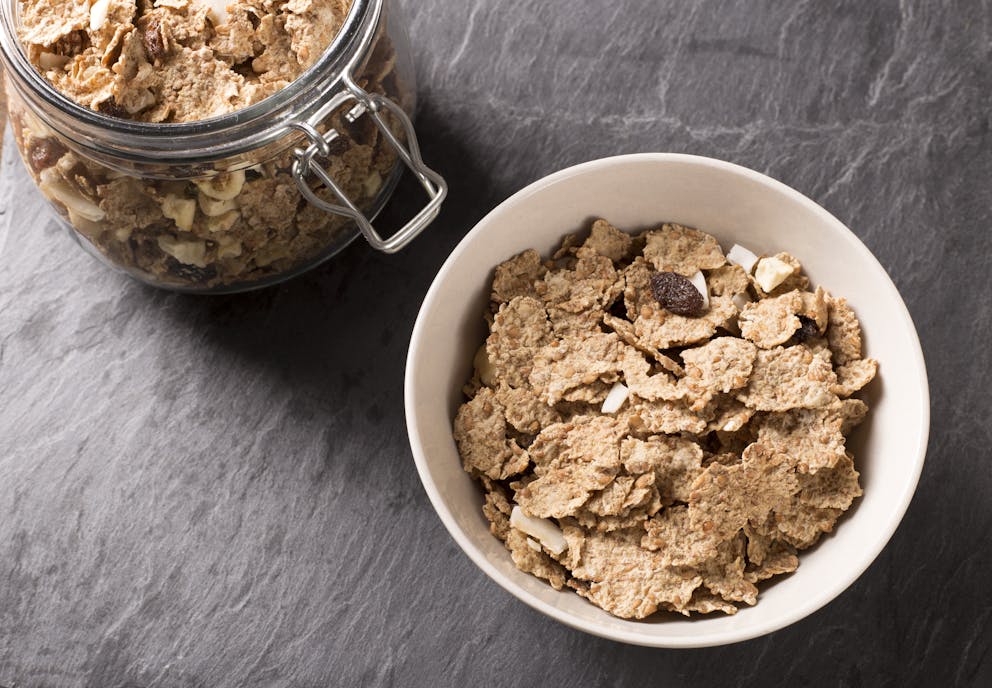The 10 Benefits of Fiber
Embarking on an exploration of fiber reveals its hidden significance in our nutrition, far beyond aiding digestion.
Commonly underestimated, fiber is a crucial element in our nutrition by ensuring regularity and regulating glucose levels, bolstering gut wellness, and assisting in maintaining a healthy weight.
Our journey today reveals the magic of incorporating additional fiber into your meals. This simple change steadies your daily vigor and cultivates a thriving ecosystem within your gut.
We'll also shed light on its nutritional benefits beyond digestion - think of phytonutrients and minerals that bolster overall well-being.
And if you're eyeing better ways to manage your weight or protect yourself against diseases like diabetes and cancer, you're in for some valuable insights.
Stick around as we unpack how simple tweaks to include more fiber can make significant strides toward healthier living.
The Unique Role of Fiber in Blood Sugar Management
Marvelously, fiber plays a pivotal role in stabilizing our glucose levels by ensuring they don't spike or plummet too drastically. But how? It acts like a bouncer at the entrance of our bloodstream, slowing down the rush of sugars from our meals.
This means we don't get those big spikes and crashes that can make us feel like we're on an emotional roller coaster.
Minimizing Glycemic Response with Fiber
When you think about fiber, imagine it as a slow-moving vehicle in your digestive system's fast lane. It takes time, allowing sugars to trickle into your blood gradually rather than all at once.
This crucial action tempers the glycemic reaction, ensuring a more controlled release of sugars post-carb consumption. The result? More stable glucose levels throughout the day.
Eating a fiber-packed diet isn't only crucial for controlling diabetes and a key player in its prevention, ensuring that blood sugar levels remain consistent.
Harvard Health Publishing explains why incorporating more high-fiber foods into meals could be one of your smartest health moves.

Fiber's Impact on Digestive Health
Fiber is crucial in maintaining digestive health by promoting regular bowel movements and preventing constipation. It adds bulk to stool, making passing through the digestive tract easier.
Additionally, fiber acts as a prebiotic, fueling the growth of beneficial gut bacteria and contributing to overall digestive well-being.
Speeding Up Transit Times
Fiber significantly influences our gut well-being by hastening the journey of nourishment through our bodies. This action helps prevent uncomfortable conditions like constipation and diarrhea.
Think of fiber as your digestive tract’s trainer, keeping everything moving smoothly and efficiently.
Fiber is a timekeeper, ensuring leftovers don't overstay their welcome in our system. This process makes us feel better and protects against specific gastrointestinal issues.
Nourishing Good Bacteria
Beyond just movement, fiber acts as a feast for the good bacteria living in our large intestine. Our tiny allies transform fiber into essential short-chain fatty acids, boosting our digestive well-being.
This relationship between fiber and beneficial bacteria is a classic win-win situation: We provide the feast, and in return, they ensure our digestion operates without a hitch. It's an intricate dance that supports digestion, boosts immune function, and lowers inflammation.
The Nutritional Powerhouse of Fiber
Fiber's role goes beyond just keeping us regular. Fiber keeps the digestive system on track and comes loaded with phytonutrients such as carotenoids and a range of crucial vitamins and minerals, enhancing our well-being in aspects we frequently underestimate.
For starters, fiber isn't just one thing; it's a complex mix of soluble and insoluble types, each playing a unique role in our wellness journey. Soluble fiber dissolves in water to form a gel-like substance that helps control blood sugar levels and lower cholesterol.
Insoluble fiber adds bulk to your stool and can help food pass quickly through the stomach and intestines.
But here’s the kicker: besides these well-known benefits, fiber is also teeming with phytonutrients such as carotenoids, vital for maintaining eye health.
These nutrients aren’t produced by the body but are found in plant-based foods rich in dietary fibers like fruits, vegetables, whole grains, nuts, and seeds. To get savvy on boosting your intake, consider incorporating more of these fiber-rich foods into your daily meals.
It's a simple yet effective way to enhance your overall diet, support critical bodily functions, and promote long-term health.
Fiber's Role in Weight Management and Satiety
Why does a bowl of oatmeal keep you fuller longer than a slice of white toast? The secret weapon is fiber. This nutrient is crucial in managing weight and keeping those hunger pangs at bay.
Key Stats: No specific stats but related to general knowledge about fiber aiding in satiety.
Fiber, remarkably adept at expanding within your stomach, offers a sense of fullness sans the calorie surplus. It’s like having an internal volume control for your appetite.
But it doesn’t stop there; high-fiber foods usually require more chewing, which gives your body time to register that you're no longer hungry, helping prevent overeating.
Beyond feeling full, fiber helps manage weight by maintaining steady blood sugar levels, preventing the spikes and crashes that can lead to snacking on sugary treats.
Regarding it, including more fiber-rich foods in your diet is one of the most superficial changes significantly impacting health and satiety.
Fiber and Its Protective Effects Against Diseases
Fiber is known for its protective effects against various diseases because it promotes overall health and well-being.
Research has shown that diets high in fiber are associated with a reduced risk of developing chronic conditions such as heart disease, diabetes, and certain types of cancer.
Incorporating fiber-rich foods into your diet can improve health outcomes and prevent disease.
Regulating Body's Bile Levels
Fiber plays a secret agent role in your body, binding with bile acids in the gut. Fiber's role goes beyond mere spectacle, serving as a critical player in regulating cholesterol and purifying bodily systems.
When fiber escorts these bile acids out of the body, it forces your liver to use excess cholesterol to make more bile, lowering blood cholesterol levels.
This process is like a natural cleanup crew for your bloodstream, keeping things running smoothly and reducing risk factors associated with high cholesterol.
Intriguingly, the effectiveness of fibers in this process varies, elevating options such as oats and barley to champion status due to their superior binding capabilities.
Feeding Colon Cells with SCFAs
Diving deeper into the wonders of fiber reveals its role as a chef for colon cells. The small chain fatty acids (SCFAs) produced from fermenting fiber are not just leftovers but prime nutrition that feeds our colon cells.
This symbiotic bond bolsters colon well-being and delivers a robust defense against colorectal cancer by encouraging salubrious cellular proliferation.
The magic doesn't stop there; these SCFAs also defend against harmful bacteria while encouraging friendly ones to thrive, creating an environment where good digestion flourishes.

Improving Insulin Sensitivity
Beyond digestion, fiber steps into the spotlight when regulating blood sugar levels. By improving insulin sensitivity, high-fiber diets help keep diabetes at bay by ensuring glucose enters cells efficiently rather than causing havoc in our bloodstream.
Exploring Fiber's Top Advantages and Keto Cabbage Recipes
Fiber offers many health benefits, from aiding digestion to promoting heart health and weight management. Incorporating fiber-rich foods like cabbage into your diet can be delicious and satisfying, especially when combined with keto-friendly recipes.
Try experimenting with keto cabbage recipes like cabbage rolls stuffed with ground meat and spices or a refreshing cabbage slaw dressed with a tangy vinaigrette to add variety and nutrients to your meals.
Conclusion
Fiber acts like a buddy in controlling blood sugar and ensuring your digestive journey is without bumps.
Fiber is a hero for your digestive health, powering the beneficial bacteria that ensure everything operates smoothly.
Let fiber fill you up and help you manage weight without feeling deprived. This nutrient powerhouse packs more than just bulk; it also brings vitamins and phytonutrients.
And don't forget, the benefits of fiber stretch far into disease prevention. It's doing heavy lifting behind the scenes, from cutting cancer risks to keeping cholesterol in check.
So start simple. Add an apple here and some beans there. Small steps lead to big gains in health with fiber lighting the way.
Supporting Data
https://www.ncbi.nlm.nih.gov/pmc/articles
Previous blog
Feeling Worse with Apple Cider VinegarNext blog
Vitiligo Do These 3 ThingsTags

Popular
08/21/2024
55.7K views
02/23/2025
46.8K views
11/18/2024
281.1K views
03/18/2024
11/21/2022




